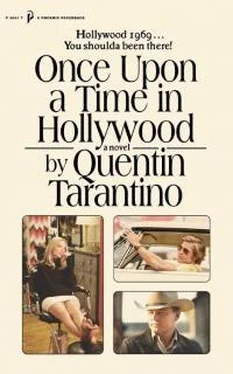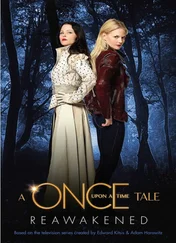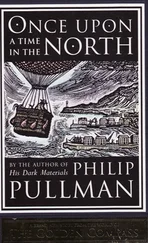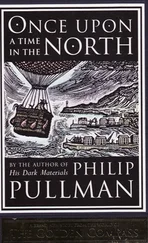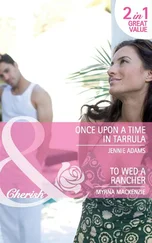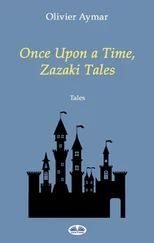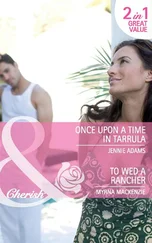As the Classics IV continue to play in her head, Sharon exits Arthur’s store and walks back to her car. Her long coltish legs move her white miniskirt down the Westwood Boulevard sidewalk, approaching the cinema where her movie is playing. Sharon starts to move past the cinema and cross the street, but she doesn’t make the green light on the corner, forcing her to cool the black heels of her white go-go boots. With her back to the cinema, the rare first edition in her hand, staring at the red traffic light, something snags Sharon from behind. Something that keeps her from crossing the street when the light finally turns green. Almost like a trout caught on an invisible fishing line, she turns around and walks into the courtyard of the Bruin and examines the lobby-card display out in front of the cinema. One lobby card has Dean with Elke Sommer. The lobby card next to it is her and Dean peering over a wall, spying something intriguing. In the photo, Sharon’s dressed in the cute baby-blue outfit with the adorable blue cap with the fluffy ball on top, which she wore through the whole last forty-five minutes of the picture. The next lobby card is another one of her and Dean. It’s a photo of her first entrance in the movie. On the lobby card, she’s lying on her back in the middle of a hotel lobby in Denmark, having just performed a comedic pratfall, with Dean bending down to assist her. Boy, she remembers that day. She was so nervous. None of her other acting jobs had ever required her to be funny, let alone perform slapstick! This was a first. And being a klutzy bumbler was the entire conception of her character. It’s why she took the part. But that didn’t make her any less nervous the first time she was meant to fall on her ass for comic effect. Not only that, but she also had to do it in front of Dean Martin, who spent twenty years watching Jerry Lewis fall on his ass. So if she fucked it up, Dean was going to know it. Now, both Dean and director Phil said she did a good job with the pratfall. And they should know, right? Still, both of them were such gentlemen, even if she had done a bad job, it’s not like they were going to tell her. Sharon isn’t insecure about the whole comedic performance. She does think she eventually got the hang of the slapstick. She’s just not so sure of that first tumble. Is she really funny or is she “sexy little me” trying to be funny? How’s a bombshell to know?
The audience, dingbat , she thinks. The audience either laughs at the gag or they don’t.
The sign on the box-office-booth window reads that the showtime is 3:30. She checks the thin gold watch on her slender wrist, and it reads 3:55. Well, that’s okay, that’s around when she enters the picture. Holy shit, really? Sharon thinks. Do I really have time to watch The Wrecking Crew in the middle of the late afternoon and still get ready for this Playboy After Dark horseshit I have to do tonight? Well, now, wait a minute, Sharon, just forty minutes ago you were pumping yourself up about how spontaneous you are when compared to Roman. If not for Roman you’d be driving to Big Sur right now with Cheyenne and dancing barefoot in the mud to Crosby, Stills and Nash. But you’re going to stand out on the sidewalk and have a debate with yourself for twelve minutes about whether or not you’re going to go see your own movie? Sharon, she thinks, you’re a goddamn hypocrite.
“One please,” she asks the cute curly-haired rubber-faced girl enclosed behind the glass cube in the box-office booth.
“Seventy-five cents,” she answers back through the metal vent in the middle of the glass box.
Sharon starts to dig in her purse to produce three quarters, then stops herself when a thought enters her mind. “Ummm … what … uh … if I’m in the movie?”
The curly-haired box-office girl’s forehead shows thinking lines. “What do you mean?” she asks.
“I mean,” she explains, “I’m in the movie. I’m Sharon Tate. My name’s on your marquee—I’m ‘S. Tate.’”
The curly-haired box-office girl’s eyes raise. “You’re in this?” she asks slightly incredulously.
Sharon smiles and nods her head. “Yes,” then adds, “I play Miss Carlson, the klutz.”
She moves over to where the lobby cards are on display and points at the one with her and Dean peering over the wall. “That’s me.”
The box-office girl squints through the glass in the box-office booth at the lobby-card picture, then back up to the smiling blonde. “That’s you?”
Sharon nods her head. “Uh-huh.”
“But that’s the girl from Valley of the Dolls ,” the curly-haired girl points out.
Sharon smiles again and shrugs her shoulders and says, “Well, that’s me, the girl from Valley of the Dolls .”
The curly-haired box-office girl is starting to see it, but she has one last issue. She points at the lobby card and says, “But you have red hair in that.”
“They dyed my hair,” Sharon tells her.
“Why?” the curly-haired box-office girl asks.
“The director wanted the character to have red hair,” she answers.
“Wow!” the curly-haired box-office girl exclaims. “You look prettier in real life.”
Now, for the record, if you’re ever walking down the street and you see an actress you recognize in real life, and you think she looks prettier than she does in movies or on television, fight the temptation to tell her so. Because it’s not something actresses like to hear. It makes them feel insecure. But Sharon knows how pretty she is, so while it bugs her a bit, at the end of the day she doesn’t really mind.
“Well,” giving the box-office girl an excuse, “I just got my hair done.”
The box-office girl yells out the open back door of the box-office booth at the day manager, Rubin, who’s standing in the Bruin lobby, “Hey, Rubin, come out here!”
Rubin steps outside into the Bruin courtyard, as the curly-haired box-office girl points her finger at Sharon and says, “This is the girl from Valley of the Dolls .”
Rubin stops and looks at Sharon and asks the box-office girl, “Patty Duke?”
She shakes her curly head and says, “No, the other one.”
“The girl from Peyton Place ?” he asks.
She shakes her curly head again. “No, the other one.”
Sharon chimes in on the guessing game, “The one that ends up doing dirty movies.”
Rubin recognizes her. “Oh!”
“She’s in our movie,” the curly-haired girl tells him.
“Oh!” says Rubin again.
“She’s ‘S. Tate,’” says the curly-haired box-office girl.
“Sharon Tate,” the actress corrects, then corrects herself, “Sharon Polanski, actually.”
Now fully up to speed, Rubin turns into the gracious manager greeting a celebrity patron. “Welcome to the Bruin, Miss Tate. Thank you for coming to our theater. Would you like to come in and see the show?”
“Could I?” she graciously asks.
“By all means,” he says as he makes a sweeping gesture with his hand to the cinema’s open front door.
Sharon walks through the lobby and opens the door leading to the darkened auditorium. As she was dicking around with the curly-haired box-office girl in the glass booth, she prayed she hadn’t missed her entrance and her comedic pratfall. As she enters the auditorium, she can hear the rotation of the reels on the film projector in the booth above her and even the slight tick … tick … tick … of the 35mm film print running through the projector film gate. She loves that sound.
Back in Texas, when she went to movies at the theater on her dad’s Army base, or when she went to the local cinema in town, the Azteca, either with her girlfriends to see something like Splendor in the Grass , or when she was enlisted to take her little sister Debra to see the new Disney movie, or at the Starlight Drive-In with a boy to see the new Elvis or Beach Party movie (and invariably engage in a slight wrestling match as she tried to watch the movie and he tried to make out), Sharon never thought about movies as “film.” Or, frankly, movies as “art.” Movies weren’t art, not like the Thomas Hardy book in her hand. They were just a fun thing to do. They were entertainment. But being with Roman has convinced her film can be art. Roman’s Rosemary’s Baby isn’t art like Thomas Hardy’s Tess of the d’Urbervilles is art, but it’s still art, just a different kind. She’s read the book of Rosemary’s Baby and she’s seen Roman’s movie, and Roman’s movie is more artful . Nor had she ever realized that certain directors make their films with the same power that great authors do. Not all directors. Not most directors. None of the directors she’s ever worked with, except her husband. But some.
Читать дальше
